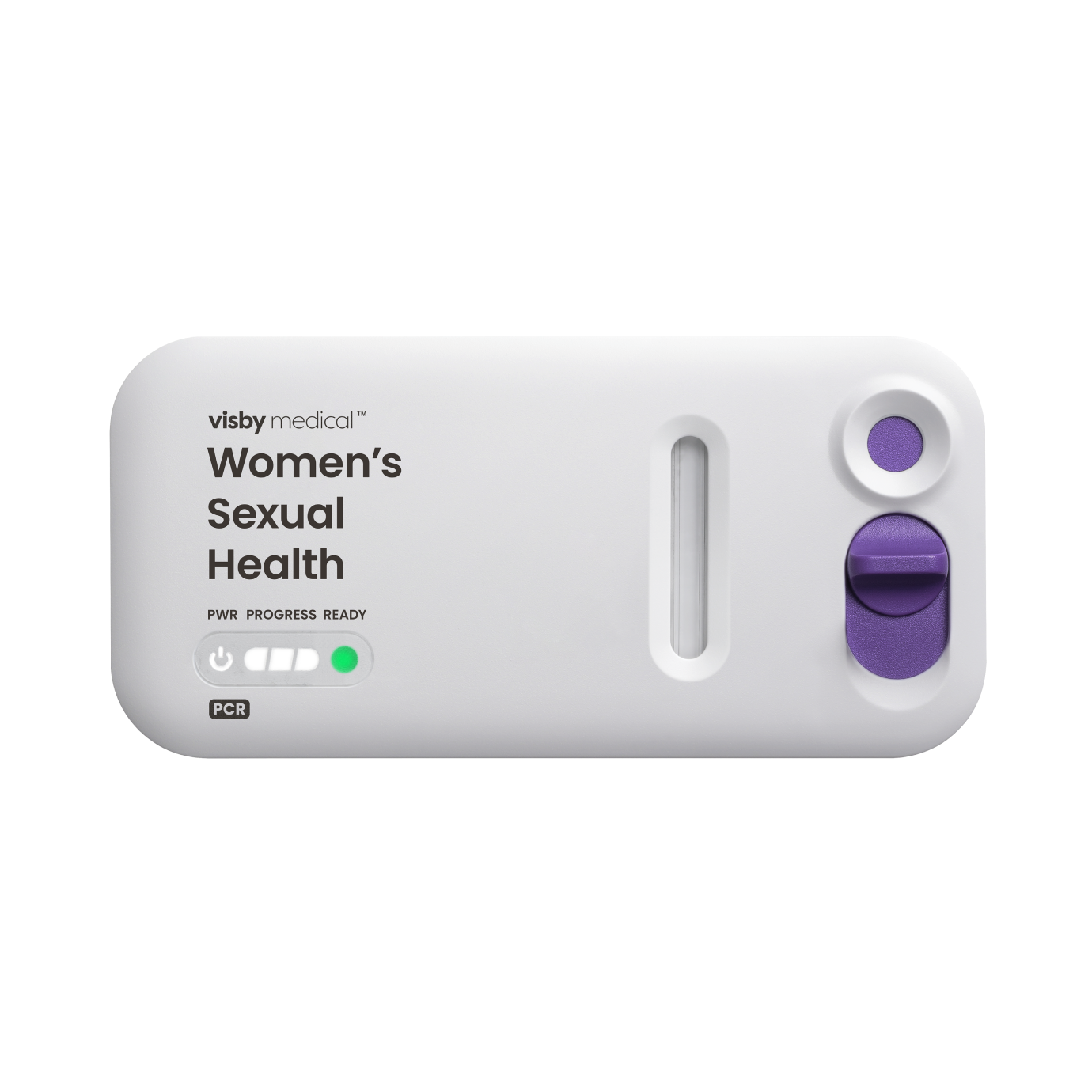
Medically reviewed on May 24, 2023 by Jordan Stachel, M.S., RDN, CPT. To give you technically accurate, evidence-based information, content published on the Everlywell blog is reviewed by credentialed professionals with expertise in medical and bioscience fields.
Table of contents
- What is blood sugar?
- What triggers high blood sugar?
- Can people without diabetes experience high blood sugar?
- What are the risk factors for high blood sugar?
- …and what causes insulin resistance?
- How can you keep blood sugar levels steady to support weight loss?
- Harness balance with Everlywell
- Related content
You may have heard that losing weight is merely a matter of consuming fewer calories than you burn. [1] But curbing your caloric intake and leveling up your workouts aren’t the only factors that play into weight management. [2] Chronic stress, insufficient sleep, genetics, and—importantly—blood sugar are just a few other factors that have an impact on your Body Mass Index (BMI).
On that point: How does blood sugar affect weight loss, exactly? And what measures can you take to ensure that your blood sugar levels remain balanced to nurture your health and wellness goals?
Let’s explore the answers to these questions and more, below.
What is blood sugar?
Blood sugar refers to the primary sugar found in the blood [3]. Technically known as “glucose,” blood sugar is affected by the carbohydrates you consume, which serve as your body’s “first stop” for fuel.
Normally after eating, your pancreas produces two hormones [4]:
- Insulin
- Glucagon
These hormones aid in furnishing your cells with the energy you need to perform both simple tasks, like walking, and complex processes, like solving a math problem.
But health conditions, medications, and other factors can disrupt this nuanced dance between insulin and glucagon. As a result, you may experience high or low blood sugar, or hyperglycemia and hypoglycemia, respectively. Both can result in weight gain (and, in some cases, unintentional weight loss). [5] For the purpose of this article, however, the focus is on how high blood sugar levels can prompt weight gain and make it difficult to take the pounds off. [6]
What triggers high blood sugar?
High blood sugar generally occurs when insulin isn’t working properly. [7] High blood sugar often present in those who have [8]:
- Type 1 diabetes, in which the body doesn’t generate adequate insulin to perform its duties
- Type 2 diabetes, which is characterized by the cells’ inability to react to insulin as they should—otherwise known as “insulin resistance”
With diabetes and insulin resistance (which can be a precursor to diabetes), the cells struggle to derive the sugar they need from the blood for energy. In turn, the pancreas produces an abundance of insulin (as if in an attempt to kick the cells into action) while the excess sugar in the blood is, over time, converted into fat.
In a cruel trick of nature, weight gain then exacerbates insulin resistance, which can put the body in a vicious cycle and can thwart your weight loss goals. [9]
Can people without diabetes experience high blood sugar?
The short answer is, yes. High blood sugar levels can also be caused by [8]:
- Eating carbohydrate-rich foods, such as sugar and white bread [10]
- Stress
- Underlying medical conditions, such as Cushing’s Syndrome
- Pregnancy
What are the risk factors for high blood sugar?
You may be at a greater risk for experiencing high blood sugar if you have [11]:
- Obesity
- A family history of type 2 diabetes
- Polycystic ovarian syndrome (PCOS)
- Hypertension
…and what causes insulin resistance?
Insulin resistance may be prompted by certain lifestyle choices and health conditions, such as:
- Smoking [12]
- Excess weight (especially around the middle of the body—what’s called “visceral fat”)
- Inadequate physical activity
The good news?
You are at liberty to make significant lifestyle changes to support balanced blood sugar levels—and the ideal body weight and can experience the vibrancy that may come with it.
How can you keep blood sugar levels steady to support weight loss?
Fortunately, there are several lifestyle changes you can adopt to keep blood sugar levels steady, including:
Reach for foods that have low and medium-glycemic levels
A mounting body of research indicates that the glycemic level of the foods you consume play a more integral role in weight management than once thought. [13]
Simply put, “glycemic level” describes how swiftly a food breaks down in the body and how fast it releases sugar during digestion.
- High-glycemic foods, like cake and Pepsi, cause blood sugar to skyrocket—and create the complications outlined above—before blood sugar nosedives, which can trigger hunger and overeating.
- Low and medium-glycemic foods, however, may help you manage blood sugar irregularities and keep your body weight in check. [14]
To this end, consider packing your plate with:
- Non-starchy vegetables
- Oatmeal, or other higher fiber resistant starches
- Certain fruits, such as bananas and cherries
Prioritize exercise
Exercise enhances your body’s capacity to use insulin for its genuine purpose: energy. [15]
The key, however, is to exercise moderately, as vigorous workouts can instigate the release of adrenaline, which increases blood sugar. [16] It is also critical as you navigate how to maintain weight loss. A few examples of moderate exercise include: [17]
- Walking
- Bicycling
Monitor your blood sugar levels
You can keep track of how you feel or you can get a more precise understanding by assessing where you stand with a blood sugar test. Generally, you want your fasting blood sugar to be around 99 mg/dl. [16]
And you don’t need to have a standing appointment with your healthcare provider to stay on top of this: at-home tests can help you obtain a more comprehensive picture of your blood sugar levels.
Lastly, it’s important to note that aiming for blood sugar homeostasis isn’t just essential for weight management: left untreated, a high blood glucose level can put you at risk for metabolic syndrome, cardiovascular disease, kidney disease, and/or stroke. [13]
Harness balance with Everlywell
Extreme fluctuations in your blood sugar levels can wreak havoc on your well-being and sabotage your weight loss goals. But practicing the pillars of health and wellness, like sound nutrition, adequate exercise, and smart stress management strategies, can support your blood sugar’s equilibrium. [16]
You can even take these health and wellness standards a step further with Everlywell. In addition to vitamins and supplements that support immunity, muscle health, and more, Everlywell also offers an online weight loss program to help you on your journey toward health and wellness. Meet with one of our certified healthcare providers to learn more about glucagon-like peptide (GLP-1) and if it’s right for you.
Empower yourself with Everlywell.
Related content
Blood sugar and weight loss: key points to know
Obesity risk factors: what you need to know
References
- Exercise and weight loss: A formula for success. Harvard Health. Published July 27, 2013. https://www.health.harvard.edu/staying-healthy/simple-math-equals-easy-weight-loss
- Salamon M. Snooze more, eat less? Sleep deprivation may hamper weight control. Harvard Health. Published April 4, 2022. https://www.health.harvard.edu/blog/snooze-more-eat-less-sleep-deprivation-may-hamper-weight-control-202204042718
- MedlinePlus. Blood Sugar. Medlineplus.gov. Published 2019. https://medlineplus.gov/bloodsugar.html
- Carbohydrates and Blood Sugar. The Nutrition Source. Published August 5, 2013. https://www.hsph.harvard.edu/nutritionsource/carbohydrates/carbohydrates-and-blood-sugar
- Plate Shifts. hms.harvard.edu. Accessed April 24, 2023. https://hms.harvard.edu/magazine/food-issue/plate-shifts
- PA-C BM. Does Insulin Resistance Cause Weight Gain? Form Health. Published September 8, 2022. Accessed April 24, 2023. https://www.formhealth.co/blog/insulin-resistance-and-weight-gain/
- MedlinePlus. Type 1 diabetes: MedlinePlus Medical Encyclopedia. Medlineplus.gov. Published 2018. https://medlineplus.gov/ency/article/000305.htm
- Hyperglycemia. Yale Medicine. https://www.yalemedicine.org/conditions/hyperglycemia
- Cleveland Clinic. Insulin Resistance: What It Is, Causes, Symptoms & Treatment. Cleveland Clinic. Published December 16, 2021. https://my.clevelandclinic.org/health/diseases/22206-insulin-resistance
- MedlinePlus. Carbohydrates. Medlineplus.gov. Published January 17, 2022. https://medlineplus.gov/carbohydrates.html
- Mouri Mi, Badireddy M. Hyperglycemia. National Library of Medicine. Published 2019. https://www.ncbi.nlm.nih.gov/books/NBK430900/
- Artese A, Stamford BA, Moffatt RJ. Cigarette Smoking: An Accessory to the Development of Insulin Resistance. American Journal of Lifestyle Medicine. 2017;13(6):602-605. doi:https://doi.org/10.1177/1559827617726516
- National Institute of Diabetes and Digestive and Kidney Diseases. Health risks of overweight & obesity. National Institute of Diabetes and Digestive and Kidney Diseases. Published 2019. https://www.niddk.nih.gov/health-information/weight-management/adult-overweight-obesity/health-risks
- Low-glycemic index diet: What’s behind the claims? Mayo Clinic. https://www.mayoclinic.org/healthy-lifestyle/nutrition-and-healthy-eating/in-depth/low-glycemic-index-diet/art-20048478
- American Diabetes Association. Blood Sugar and Exercise | ADA. diabetes.org. Published 2022. https://diabetes.org/healthy-living/fitness/getting-started-safely/blood-glucose-and-exercise
- Alexander H. 4 tips to avoid sugar spikes. MD Anderson Cancer Center. https://www.mdanderson.org/cancerwise/how-to-avoid-sugar-spikes.h00-159537378.html
- Examples of Moderate and Vigorous Physical Activity. Obesity Prevention Source. Published May 8, 2017. https://www.hsph.harvard.edu/obesity-prevention-source/moderate-and-vigorous-physical-activity/
Spotlight on
February is Cancer Prevention Month

86% of cancers aren't caught by recommended screenings. See what they're missing with a single blood draw.
Save $100 now

Knowing is powerful. Screen for early signs with the FIT Colon Cancer Test.
Save 25% now
Explore Everlywell








